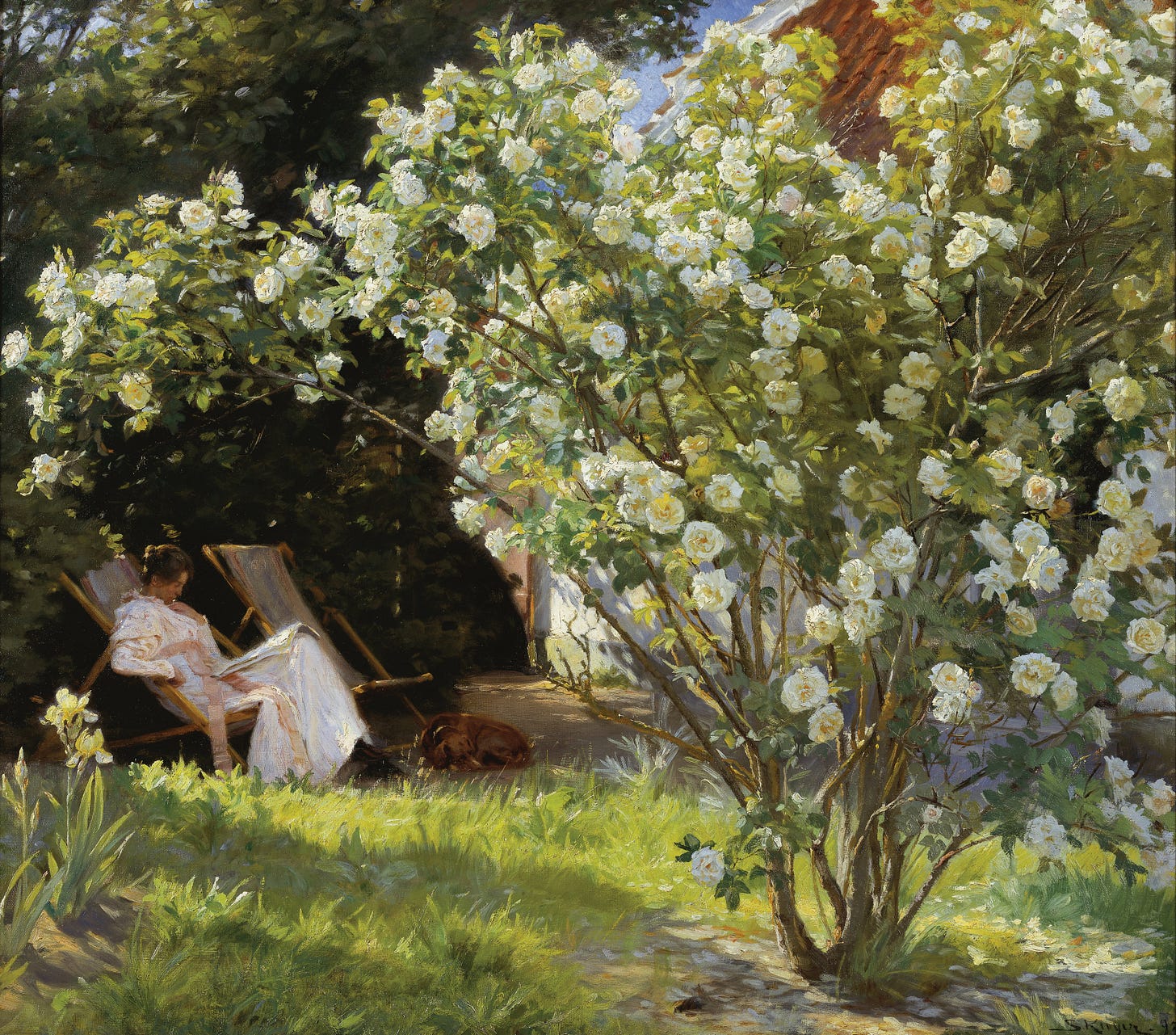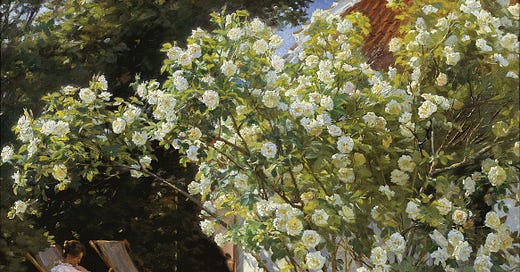
My TBR for 2024 consisted of some 100 books.
There was a wide selection of non-fiction, classics, essay collections and contemporary fiction. Mary Oliver, Virginia Woolf, Barthes, Euripides, Mona Awad, Shirley Jackson, &c were all there. Page counts ran from 64 in We Should All Be Feminists to 576 in The Secret History. Time moved from the reign of Augustus in 8 CE to 2023.
I would have liked to read them all. But my Notion tracker revealed that I only chose the books that truly interested me. Not the ones that others were picking up, featured in ‘fall reading’ lists and certainly not the ones I wanted to be interested in. Wandering interests and highly personal curiosities inspired my choices. Looking back, I am quite pleased about this.
Here are some favourite discoveries, sans any ranking order:
Greek mythology
This was the most prevalent genre for me. I read Metamorphoses by Ovid in August as part of an online group, and it satiated my desire to know the Greco-Roman pantheon of mythological beings. Juno, Minerva, Apollo, Orpheus, Hecuba, Scylla, Polyphemus— I got to know them all and many more. The poem is broken into 250 tales which made it easy to progress and feel a motivating sense of accomplishment.
Since so many artists draw inspiration from the rich world of the poem and have painted scenes from it, I also became confident about interacting with art. …isms: Understanding Art by Stephen Little was a great follow-up and introduction to art history. Highly recommended if you want to learn about the different schools of art in a succinct yet readable manner without being overwhelmed. Here is a glimpse of it:
I also read six plays by Euripides, the last great tragedian dramatist of Classical Athens. In Hecuba, The Women of Troy and Iphigenia at Aulis, he uses the backdrop of the Trojan War to show the devastating consequences of Athen’s actual war against Sparta at the time. Hecuba’s disillusionment, the laments of the women of Troy and young Iphigenia’s sacrifice were meant to be warnings for the Greeks. Alas, they were unheeded.
In comparison, Helen is a lighter drama. It presents Helen, who was mythologically responsible for the start of the Trojan War, as a victim of Aphrodite’s and Hera’s power play rather than an adultress. Instead of running off with Paris, she was deposited in Egypt by Hermes and has been living there and keeping herself chaste for her husband for seventeen years. Euripides, as you can see, did his best to rehabilitate her reputation. I enjoyed the alternate interpretation.
Cyclops is the only surviving satyr play. It is a low comic piece that was meant to amuse audiences with its bawdiness and celebrate the unity of Athenian culture. I did not care much for it.
Writing
This was hard to put down. Klinkenborg’s approach places the sentence and its structure + rhythm at the centre. From his POV, writing is not an effusive outpouring of inspired words but an activity where conscious attention and effort must be applied. He stresses the importance of grammar and syntax and talks about perception, working at the level of thought, noticing your interests and how to think about the reader.
However, the book’s style might seem off-putting:
You’ll discover that the act of making sentences in your head—
Composing and revising at the same time,
Making them sharper and more accurate—
Tends to uncover thoughts you didn’t know you had,
Allowing you to say things you didn’t know you knew how to say
In sentences stronger than you knew you could make.
If you can make do with this arrangement, I highly recommend adding it to your TBR. You might uncover a fresh, helpful perspective or method for your writing practice.
Friendship
The Other Significant Others was a paradigm-shifting book. It opened up a new possibility space where I could glimpse what friendship, prioritized and nurtured, could grow into. It renewed my appreciation for friendships and inspired me to let them take more space in my mind and schedule. I wrote about the experience of reading the book in more detail here:
Style
A Guide to Elegance by Geneviève Antoine Dariaux is like having a strict but knowledgeable French madame teach you the intricacies of timeless personal style.
There is advice about accessories, funerals, jobs, knees, men, posture—and because it was written in 1963—evening dresses and gloves. The target audience is a lady of the affluent classes, so there are instructions on yachting and royalty. I am not of those classes but did appreciate learning what constitutes an appropriate wardrobe for vacationing in the country.
Because of the norms of the time, there is a myopic view regarding certain traits (being short/ busty/ freckled/ with red hair &c). But if you keep the 60s stuff where it belongs in the past, there is helpful advice about creating a classic personal style rooted in quality.
I found the book charming and fun. Definitely buying a copy for my personal library.
Lessons and plans
My year of scattered yet rewarding reading taught me four things:
Don’t try to squeeze a lifetime's worth of books into twelve months.
Prioritize the books you cannot stop thinking about, even if they are re-reads.
Clarify what you will not read and try to keep up with.
Let it always feel expansive.
Shaped by these insights, here are my plans for 2025:
🔹 My TBR has 37 titles, a reasonably ambitious leap from the actual number I read in 2024. Thirty-seven books means at least three books per month—a doable goal with my schedule.
🔹 My author focus is going to be Angela Carter, who I have been meaning to read for the better part of two years. Her biography The Invention of Angela Carter is my favourite book, and I can not wait to re-read it in January! After that, I am going to make my way through all of her nine novels, followed by four supplementary texts that provide a critical analysis of her work.
🔹 Non-fiction selections will relate to physicality and people, my theme for 2025.
🔹 For classics, I am doing the War & Peace slow read, led by
at Footnotes and Tangents. The size of the novel intimidates me somewhat, but going through it one chapter a day with other people will hopefully alchemize apprehension into fun. If this sounds interesting, you can still join in!🔹 I have removed all traces of contemporary fiction from the TBR. For 2024, I put 50 novels from this genre on the list but read none of them. Not a single one. It is clear to me that in this phase of my life, I value classics and non-fiction related to my interests. No point in psychically weighing myself down with what does not strongly interest me. If I find something in this genre I want to read, I’ll put it in a separate ‘maybe’ list.
I was inspired to be organized after seeing
’s 2025 reading plan. He divided it into categories like Isaac Asimov, Women in Literature, Living and Learning in the Machine Age, The Greek Hero, &c. His systematized approach encouraged me to try committing to a more thoughtful reading year. Fingers crossed that I don’t wander (or do so only minimally).If you would like to brew your own brand of book-planning madness,
is currently running an introspective 8-week series about defining your reading style and discovering what you want from your literary endeavours:Or you can see what excites you from
’s list and jump right in:Chronicles of a Modern Reader in 2025
I started this newsletter to ensure that I read regularly and had a space for active, engaged reflection. So far, my mission has been successful. The joy I derive from reading is richer than before I began writing these missives.
Now that I am more comfortable here, I want to experiment while focusing on the overarching themes I am passionate about. Writing your way to an aspired, transformed self was an unintentional preamble, and I want to see: what else can arise when I make the space for it?
Posts will continue to go out twice a month but will consist of an essay + a monthly book roundup. The essays will explore bookish or non-bookish topics, while the roundups will be a concentrated container for what I read in a month. Excited to see how the new formats influence the subject and length of my writing!
Thank you very much for being here. I would love to know: What were your favourite books of 2024? What’s on your TBR currently? Is there something you are certainly not going to read?
Sending wishes for a warm and memorable start to 2025. May the new year be filled with all of your beloved things, old and new ✨☕









Thank you, Esha, for sharing this inspiring and wide-ranging list of books! Every time I read one of your posts, I’m reminded of how reading is such a rewarding, pleasurable and generative activity.
This post itself is such a mosaic of inspiration! I love your four lessons on reading from this year. My favourite one is: “Let it always feel expansive.” For me, that sense of expansiveness is one of the things that keep me going back to reading. So this lesson resonated deeply!
Following your newsletter this year has been such a true delight, and your plans for 2025 make me even more excited to follow along! Wishing you an amazing end of the year, and I look forward to reading more of your wonderful writing in the new year!
I love how this end-of-the-year newsletter did not feel overwhelming to read. I glided from one topic to the next with ease. The lessons from 2024 and COAMR in 2025 were my favourite. Your evolution as a reader and writer this year has been so special. I love that I got to witness it so closely. I am sure you'll achieve your reading goals and even if you don't, something really interesting will come out of the digression.
Do you have any tips for someone who starts reading a book, loses interest mid-way and forgets about it altogether? Asking for a friend. 🙈 🥲